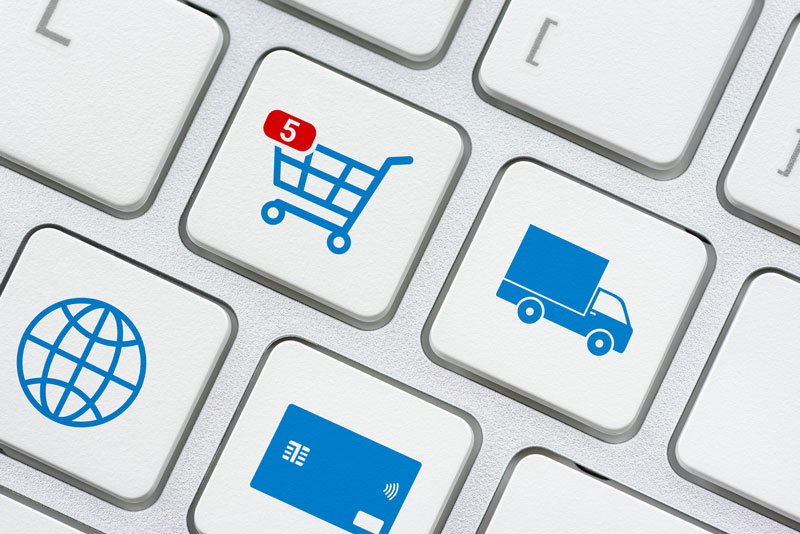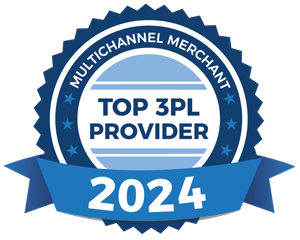Why Successful eCommerce Order Fulfillment Starts with Integration

Just when you think ecommerce order fulfillment could not grow any faster, the year 2020 hits. According to a report issued by Adobe last month, total ecommerce spending in May accelerated to $82.5 billion. That’s a 77.8% increase year over year.
The crux of this growth is being driven by the COVID-19 pandemic, which continues to impact individuals and businesses everywhere and will have ripple effects around the globe not only for 2020 but for years to come.
Will ecommerce continue to grow at such astounding rates in light of current events? Time will tell. But increased consumer desire to purchase products online – from bottled water, supplements or cosmetics, and other life essentials to furniture and fitness products – is here to stay.
On the customer-facing side of your business, it’s more critical than ever for shoppers to have a consistent and satisfying ecommerce experience. On the backend of your business, it’s crucial to have an ecommerce order fulfillment process that runs efficiently. And efficiency starts with seamless integration of your ecommerce platforms with your other channels and supporting functions.
The Complexity of eCommerce Integration

No matter what type of business model or eCommerce solutions your business has – Business to Business/B2B, Business to Consumer/B2C, individual brand website, big box retailers, online marketplaces – your eCommerce function cannot stand on its own. To have effective order fulfillment services, eCommerce needs to be effectively integrated with your other sales channels, your ERP, and other internal processes such as fulfillment:
Sales channels
- Individual Websites and Mobile Apps
- Online Flash Sale Sites like Etsy
- Marketplaces like Amazon
- Brick and Mortar Locations and Dropship Retailers
ERP
- Manufacturing
- Inventory Management
- Finances/Accounting
- Sales and Marketing
Fulfillment
- Warehouse/Inventory Management
- Pick/Pack
- Shipping
- Returns Processing
Why is eCommerce integration so important? Because the benefits of integration far outweigh the negative outcomes you’ll encounter if you continue to operate your ecommerce functions in a silo and not effectively integrate.
Realizing the Benefits of Integrated eCommerce Order Fulfillment

Using a third-party expert such as a 3PL for your ecommerce fulfillment services can help make turnkey integration seamless and simple, ensuring your business is continually operating with desired outcomes like speed, accuracy, and cost savings.
Reduced Data Redundancy and Errors
Integrating your ecommerce storefront and shopping cart with your other internal systems eliminates the need to enter the same data set across multiple systems. Information is entered once, transactions are recorded once, and efficiency is gained from less data repetition and fewer errors.
eCommerce integration is simple if your business partners with an experienced fulfillment expert. For example, PFC is always expanding our extensive list of integration capabilities. Our fulfillment technologies integrate with today’s most popular shopping carts and platforms, as well as major retailers through EDI:
- Shopify
- Amazon
- WooCommerce
- Big Commerce
- Magento
- Walmart
- Other ecommerce platforms
Increased Productivity
eCommerce system integration also plays an important role in streamlining business processes – ultimately driving heightened productivity. When ecommerce transactions are working together in real time with other internal systems to track key activities – online orders, payment processing, inventory management, order fulfillment – consumer product is shipped out the door with greater speed and accuracy.
Reduced Operational Costs
Cost efficiencies are realized when monetary movement, profit, loss, budget, and planning is integrated into one robust system and managed in real-time. Having access to other sets of real-time data like inventory and inventory turns, order shipping, tracking, and product returns also plays a role in reducing operational costs.
Dynamic Reporting and Greater Visibility
Having an expert 3PL manage your integration gives you the benefit of dynamic reporting that can deliver critical data in real time, 24/7/365. Our comprehensive reporting portal gives clients visibility into the day-to-day activity of their program. The reporting tool provides access to valuable data through a mix of pre-configured or customizable reports, which can be downloaded or scheduled for automatic email delivery. Information is accessible anytime, anywhere.
Contact PFC Fulfillment
Improve the current state of your ecommerce fulfillment services with expert guidance from PFC. Contact one of our integration experts today for a quote.

